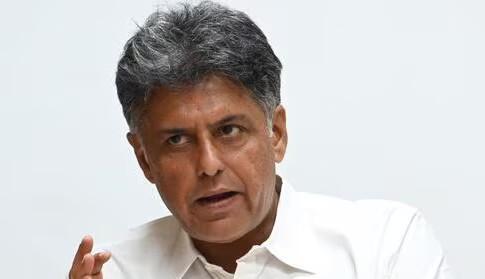
Against Constitution: Tewari on bills to remove jailed PM, CMs
The recent move by the government to present three bills in Parliament for the removal of Prime Ministers, Chief Ministers, and Ministers facing serious criminal charges has sparked a heated debate in the country. While the government claims that the bills are aimed at ensuring accountability and transparency in governance, opposition leaders like Congress MP Manish Tewari have expressed serious concerns about the potential misuse of state instrumentalities and the violation of the basic structure of the Constitution.
According to reports, Union Minister Amit Shah presented the three bills, including the Constitution (Amendment) Bill, 2023, the Representation of the People (Amendment) Bill, 2023, and the Disqualification of Ministers (Amendment) Bill, 2023, in the Lok Sabha last week. The bills propose to remove the Prime Minister, Chief Minister, and Ministers from their offices if they are facing serious criminal charges and have been arrested or imprisoned.
However, Tewari, a senior Congress leader, has strongly opposed the bills, terming them as “against the basic structure of the Constitution.” In a statement, he said, “These bills are a clear attempt to undermine the fundamental principles of our Constitution. The Indian Constitution says that one is innocent until proven guilty. The bills seek to reverse this principle by assuming that a person is guilty until proved innocent.”
Tewari’s concerns are not unfounded. The bills, if passed, would give the government unprecedented powers to remove elected representatives from their offices without due process. This could lead to a situation where individuals are removed from office based on mere allegations, without being given a fair hearing or a chance to prove their innocence.
Moreover, Tewari pointed out that the potential for misuse of state instrumentalities under these bills is enormous. “The bills will create a culture of suspicion and mistrust among citizens,” he warned. “It will lead to a situation where people will be targeted and removed from office based on political vendetta rather than on the merits of the case.”
Tewari’s concerns are echoed by many constitutional experts and legal scholars who have expressed similar reservations about the bills. They argue that the bills violate the principles of natural justice and the rule of law, and that they are an attempt to undermine the independence of the judiciary.
The bills have also been criticized for their lack of clarity and ambiguity. For instance, the Constitution (Amendment) Bill, 2023, seeks to insert a new article in the Constitution that would allow the government to remove the Prime Minister, Chief Minister, and Ministers from office if they are facing serious criminal charges. However, the bill does not define what constitutes “serious criminal charges” or what the criteria for removal would be.
Similarly, the Representation of the People (Amendment) Bill, 2023, seeks to amend the Representation of the People Act to provide for the removal of elected representatives from office if they are convicted of a crime. However, the bill does not specify what type of crime would warrant removal from office.
Tewari’s opposition to the bills is not surprising. As a member of the Congress party, he has consistently criticized the government’s attempts to undermine the Constitution and the rule of law. However, his concerns are not limited to party politics. As a passionate advocate of democratic values and constitutional principles, he is worried about the potential consequences of these bills for the country’s democracy.
In conclusion, the bills presented by the government for the removal of Prime Ministers, Chief Ministers, and Ministers facing serious criminal charges are a clear attack on the basic structure of the Constitution. They are an attempt to undermine the principles of natural justice and the rule of law, and to create a culture of suspicion and mistrust among citizens. As such, they must be strongly opposed by all those who value democracy and the Constitution.






